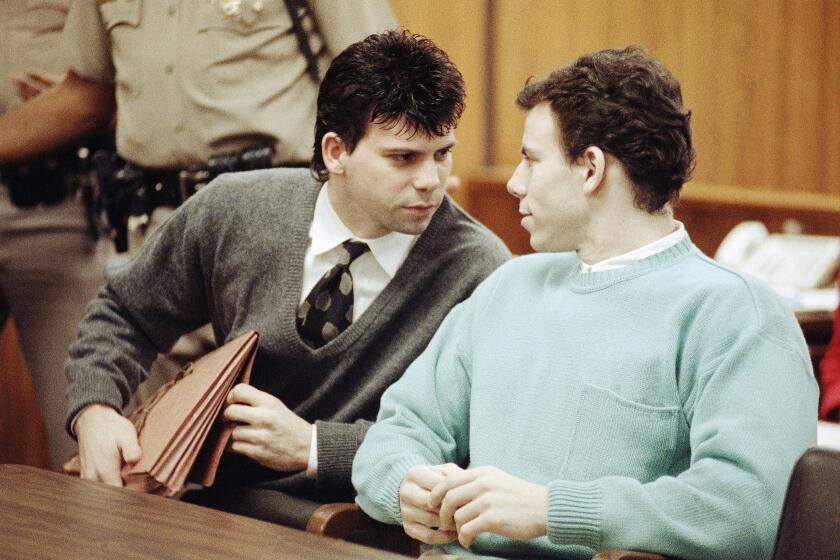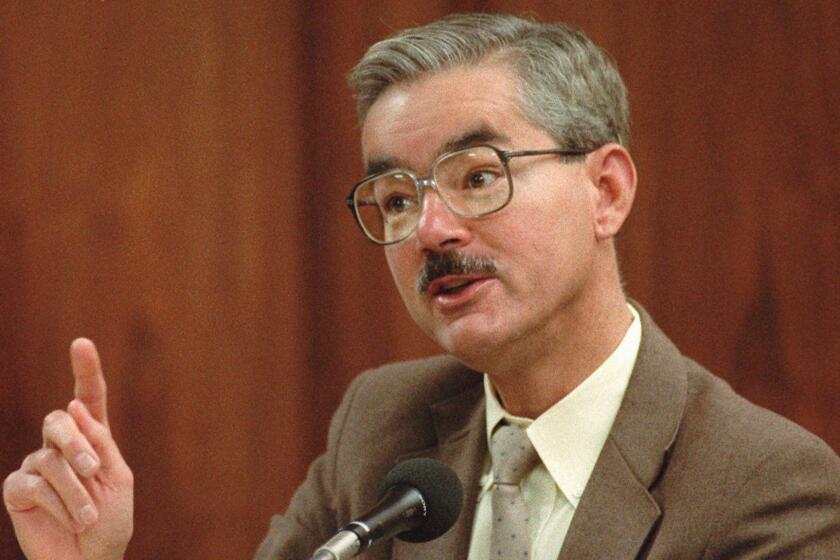
- Share via
It was never a question of whether they killed their parents.
Lyle and Erik Menendez bought two shotguns with cash. The next day, the brothers drove to a shooting range. And the following night, they murdered Jose and Mary Louise “Kitty” Menendez as the couple ate ice cream and watched a movie in their Beverly Hills mansion.
“No! No! No!” Jose Menendez, their 45-year-old father, yelled as shotgun blasts echoed in the family’s living room on Aug. 20, 1989, the brothers would later tell a therapist. He was struck five times, including in the back of the head. Their 47-year-old mother, wounded, crawled on the ground as the brothers reloaded before administering a final fatal blast.
The brutality of the crime led many — including law enforcement — to speculate whether the killings were mob hits. But when the couple’s two children were identified as suspects, and the nation became engrossed in the gruesome killings and the family’s inner workings, everyone wanted to know why?
The answer prosecutors offered was simple: money. Used to living a life of privilege, the brothers executed their parents because they had threatened to cut them off from the family’s $14-million estate.
But during two highly scrutinized trials that launched the Menendez brothers into true crime notoriety, defense attorneys argued the killings came after years of violent, repeated physical and sexual abuse suffered at the hands of their father, a top executive at RCA Records.
The first trial ended with two hung juries. In the second, allegations of abuse and supporting testimonies were restricted, and Lyle and Erik Menendez were convicted of first-degree murder in March 1996.
Twenty-seven years later, attorneys and advocates want the court to take another look at the case amid new sexual assault allegations they say corroborate a history of abuse against the brothers.
New evidence backs their claims, lawyers say, and again raises the specter that the story behind the murders — and the Menendez family itself — may be more complicated.
A recently discovered letter that attorneys say was written by Erik Menendez suggests sexual abuse by his father continued into his late teenage years.
And new allegations made by a former member of the Puerto Rican boy band Menudo suggest Lyle and Erik Menendez were not the only alleged victims of abuse. Roy Rosselló, who raised the allegations in the Peacock docuseries “Menendez + Menudo: Boys Betrayed,” says he was raped in the 1980s by Jose Menendez when he was 13 or 14 years old.
Erik and Lyle Menendez point to a documentary that alleges Jose Menendez sexually assaulted an underage member of Menudo.
A petition filed on behalf of the brothers in Los Angeles County Superior Court in May argues the new evidence directly challenges the argument prosecutors made during trial: that the murders were about money and that Menendez was not the “kind of man that would be abusing his sons.” They want the convictions vacated or a new evidentiary hearing.
“The shootings were not murder but manslaughter, committed out of an honest though unreasonable belief in the need for self-defense after a lifetime of sexual and physical abuse,” the motion reads.
On June 15, a judge asked the Los Angeles County district attorney’s office to file an informal response to the request before a judge rules on the habeas petition. In particular, the judge asked prosecutors to address whether the recently discovered evidence could have been found during the trial and if prosecutors believe the letter would have been admissible.
A spokesperson for the D.A.’s office said it is reviewing the Menendez brothers’ case files in order to answer the judge’s questions.
The petition could be the last shot the brothers have at revisiting their convictions and life sentences. The new revelations also could be a test of how society’s views of sexual abuse and its impacts have changed over the past three decades. After years of legal debate — and countless movies and TV miniseries recounting the grisly killings — would prosecutors, judges and juries view the allegations of abuse in a different light, and would it change the outcome?
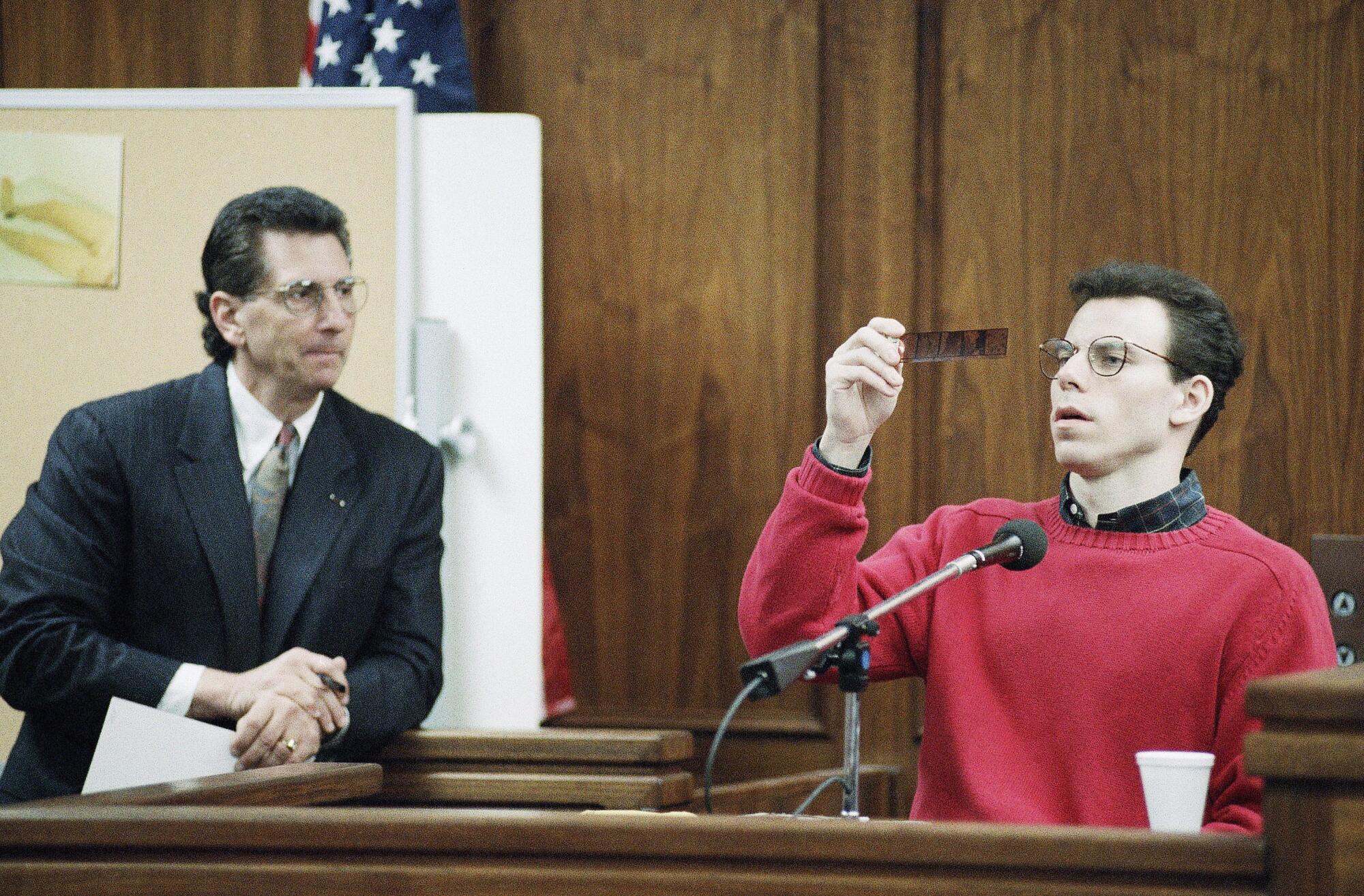
Legal experts concede that abuse is now viewed and treated differently in court. Still, the motion may be “too little too late,” said Laurie L. Levenson, a professor at Loyola Law School.
“There was skepticism about their claims from Day 1,” she said. “Maybe this will address some of the skepticism, but I don’t know if it will be sufficient.”
Courts are disinclined to reverse a ruling, and attorneys may have to jump through legal hoops with any new evidence, Levenson said, including corroborating the content and timing of the undated letter.
“I don’t think anyone should think they found their golden ticket,” she said. “All things could be true, and they may still not win. It could be true they were subject to abuse, it could be true this other boy was subject to abuse, but that doesn’t necessarily add up to them being able to reduce their charges.”
Attorneys for the brothers disagree.
“This undercuts the state’s theory,” said Cliff Gardner, among those now representing the siblings. “We know the abuse was occurring, and Jose was exactly the type of person that would sexually abuse a 13-year-old.”
Erik and Lyle Menendez were convicted of murdering their parents.
Gardner said he believes the ruling to limit allegations of sexual abuse from the second trial skewed the outcome. At the time, he said, such claims were viewed with deep skepticism.
If the trial were held today, that evidence likely would be allowed, Gardner said. “Our understanding of sexual abuse and the impact of sexual abuse — especially a lifetime of it involving children — is much different.”
The allegations would have meant a conviction of the lesser charge of manslaughter — rather than murder — was possible, Gardner said. After 27 years behind bars, it also would mean freedom would be possible.
Regardless of how the allegations may be perceived, experts say there are other hurdles with this legal challenge.
“They know that they snapped and they deeply regret it. They are just asking the world to understand why.”
— Nery Ynclan, a journalist on the docuseries “Menendez + Menudo: Boys Betrayed”
If the petition moves forward, attorneys will have to show why the letter and Rosselló’s testimony weren’t introduced at trial, said Andrea Roth, a professor of law at UC Berkeley.
Leslie Abramson, the Menendezes’ former defense attorney, said she doesn’t discuss the case anymore. She, other defense lawyers and prosecutors from the second trial — including Gil Garcetti, who was the district attorney at the time — declined to be interviewed by The Times.
“I am still harassed by TV producers, high school kids and nutcases who promise to get the clients out of prison,” she said in an email. “I have nothing else to say to you.”
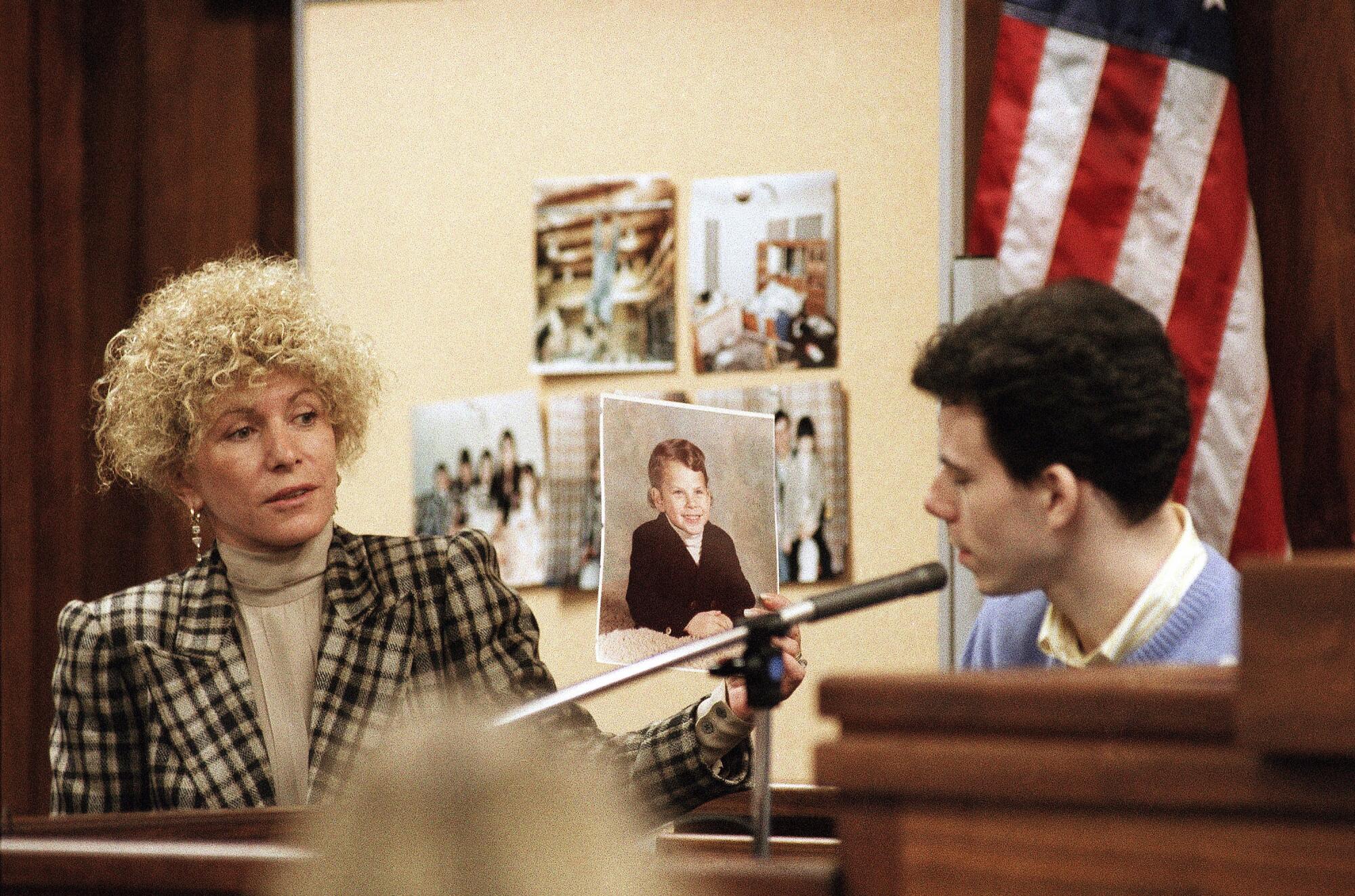
After their convictions, Erik and Lyle Menendez pursued unsuccessful appeals, but Gardner argues this time is different.
“If the abuse did happen, then it’s a different case,” he said.
Years after the convictions, the murders and allegations of abuse have divided not just the public, but Menendez relatives — some of whom have advocated for the brothers’ release and others who have brushed off claims of abuse as a ruse to skirt responsibility for the killings.
Milton Andersen, Mary Louise Menendez’s brother, told the New York Times that he has never believed the allegations.
“They do not deserve to walk on the face of this Earth after killing my sister and my brother-in-law,” he said.
Andersen couldn’t be reached for comment for this story.
But Joan VanderMolen, Mary Louise Menendez’s sister, said she’s hopeful the petition will get her nephews released.
“I just want some fair treatment for Lyle and Erik,” the 91-year-old said. “When we found out what the truth was, it was difficult.”
During the first trial, relatives corroborated the brothers’ abuse claims.
A cousin, Diane VanderMolen, testified that Lyle Menendez once came into her room when she stayed overnight. She was 16 at the time and he was 8.
She testified that Lyle was scared to sleep in his own room because Jose Menendez was touching Lyle’s genitals and forcing Lyle to touch his genitals as well, according to transcripts from the original trial.
At age 13, Erik Menendez confided that his father was molesting him, a cousin testified Tuesday.
Andy Cano, another cousin, testified that at age 13, Erik Menendez told him his father “was massaging his genitals” and asked Cano whether his dad did the same thing to him.
Friends and family also testified that “when Jose Menendez was in the bedroom with one of the boys, no one was allowed to walk down the hallway past the bedrooms.”
Alan Andersen, 61, a cousin who stayed with the Menendez family for three summers when he was a teen, remembered that rule.
“[Their mother] would say, ‘Do not go down the hallway,’ ” said Andersen, recalling when the boys returned from playing tennis with their father. “I had to go down to the basement to go down to the bathroom.”
Andersen, who testified for the defense during both trials, said he remembers being told the siblings had to shower with their father after tennis. Afterward, they would run to their bedroom and lock themselves in, he said.
His decision to testify for the defense became a point of contention between him and his father, Brian Andersen, who testified for the prosecution and painted a different picture of the Menendez clan.

Brian Andersen testified during the first trial that he attended tennis tournaments weeks before the killings and remembered “excitement, jubilation, backslapping, compliments” from Jose and Mary Louise Menendez when Erik Menendez was winning.
In a later tournament, he testified that Erik was losing and told his father to “shut up!” when he walked over to talk to him.
Defense attorneys asked Andersen if Erik’s outburst was because his father had told him, “You played like an ass!” but Andersen said he didn’t recall.
In addition to renewing the brothers’ allegations of repeated sexual abuse, the petition states that prosecutors shifted their arguments between trials. They went from saying that even if the abuse happened, “that does not mean the defendants are not guilty of murder” to calling the allegations “a total fabrication” and arguing there was “no way of corroborating” the claims.
“The juries in the first and second Menendez trials heard two completely different sets of evidence,” said Robert Rand, who covered the trial for the Miami Herald and wrote “The Menendez Murders” book. “The second trial jury did not hear what many considered to be key evidence: that the brothers complained about the sexual abuse to several relatives and friends before the killing.”
A psychiatrist who caused an uproar in the 1990s when he admitted altering clinical notes in the infamous Menendez brothers’ murder trial has agreed to surrender his medical license over new allegations of wrongdoing, according to the Medical Board of California.
Defense attorneys successfully argued during the first trial that testimony of abuse allegations was relevant, citing state law that allowed female victims to include evidence of abuse and its psychological effects. Prosecutors mostly agreed.
But in the retrial, the D.A.’s office pushed back, arguing the testimony was irrelevant and that California law protecting “battered women’s syndrome” as a defense did not apply to the brothers, according to Times coverage of the trial. The testimony of more than 30 people who took the stand at the first trial was excluded. The only person who testified about abuse allegations during the second trial was Cano.
But attorneys say now there is not only testimony, but evidence pointing to abuse.
In a letter that attorneys say was written by Erik Menendez about eight months before the murders, he tells Cano: “I’ve been trying to avoid dad. Its [sic] still happening Andy but its worse for me now.”
Cano died in the early 2000s, Gardner said, and his possessions had been sealed in a room for years. The letter was recently discovered after his mother, Marta Menendez Cano, went through his belongings.
The letter, attorneys argue, suggests the abuse occurred not only during the siblings’ childhood but into adulthood and near the time of the murders, when Erik was 18 and Lyle was 21.
“I never know when its going to happen and its [sic] driving me crazy,” the letter, submitted in court filings, reads. “Every night I stay up thinking he might come in.”
Roy Rosselló, who was in the boy band Menudo in the 1980s, alleges in a new docuseries that he was raped by the slain father of the Menendez brothers.
The petition also cites testimony from Rosselló.
He alleged in the docuseries that Edgardo Díaz, the founder of Menudo, took him to the Menendez family home in New Jersey. There, he says, he was given wine, drugged and raped by Jose Menendez, suggesting the trip was to help seal a deal between RCA and Menudo.
In a declaration filed as part of the petition, Rosselló alleged Menendez performed oral sex on him before a concert in New York. After the concert, Menendez raped him at a hotel, Rosselló said.
“The new evidence not only shows that Jose Menendez was very much a violent and brutal man who would sexually abuse children, but it strongly suggests that — in fact — he was still abusing Erik Menendez as late as December 1988,” the petition reads. “Just as the defense had argued all along.”
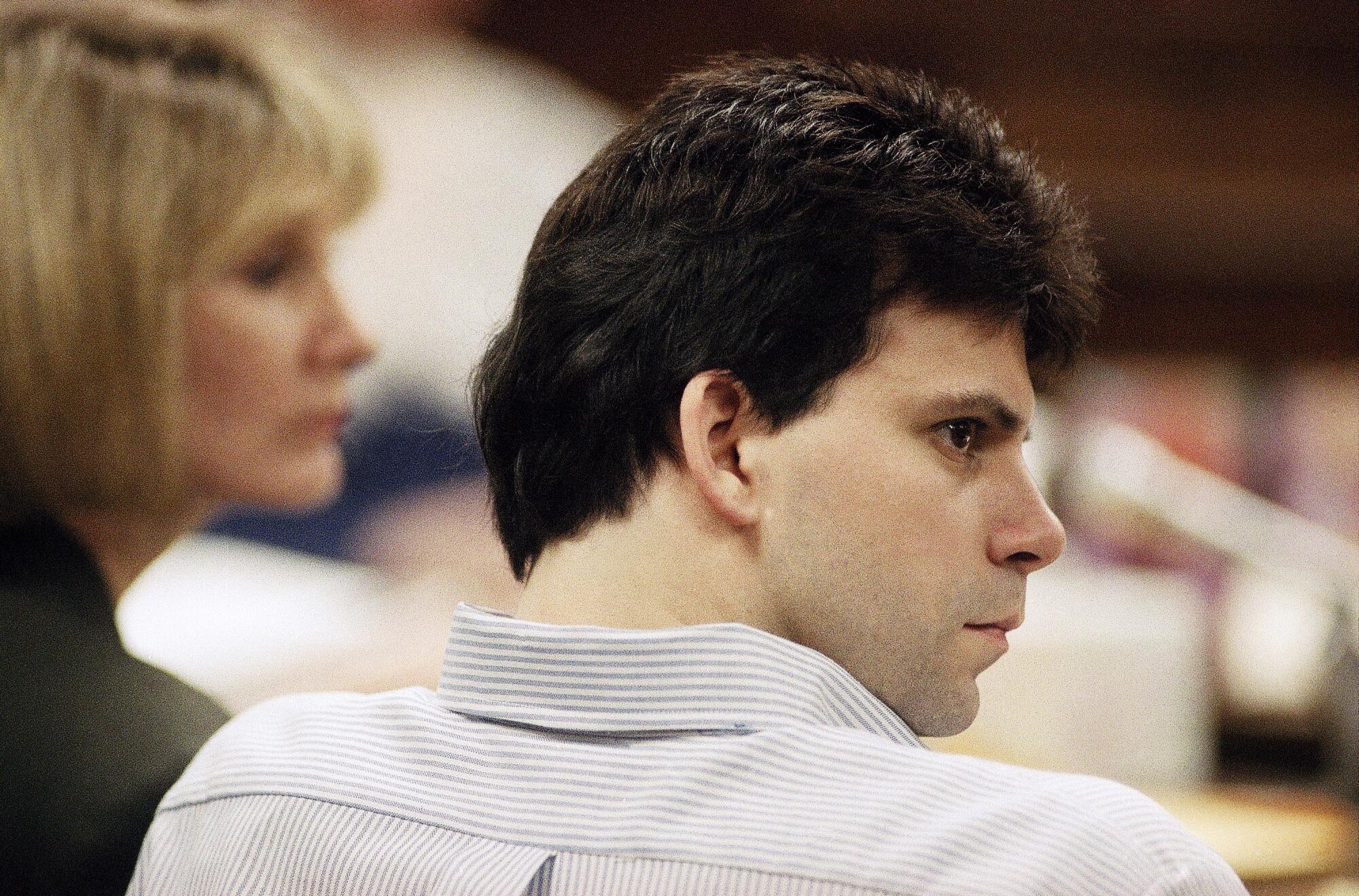
According to legal experts, other factors presented during the second trial served to damage the brothers’ credibility — as well as their abuse claims — and bolster the prosecution’s argument that they were privileged kids looking to get away with murder.
Prosecutors argued the pair’s decision to use a friend’s ID to buy the murder weapons days before the shooting and then hide the guns in a car showed premeditation.
Witnesses also testified that Lyle tried to convince them to lie on the stand, including concocting a tale that the brothers tried to get a handgun because they felt they were in danger. Lyle’s former girlfriend also testified that he asked her to falsely testify that Jose Menendez had asked her to stop seeing Lyle and then drugged and raped her when she refused to.
“There were overall concerns about the credibility,” Levenson said.
Rand, who has maintained contact with the Menendez brothers and reported the “Menendez + Menudo” docuseries with Nery Ynclan, said he believes if the trial were held today, “there may be a completely different outcome.”
After the #MeToo movement and high-profile cases of abuse and sexual assault, the question is whether the Menendez case would be received differently now — not just in the public, but in court.
“Actual convictions of powerful perpetrators has changed the landscape for victims,” Ynclan said.
In July 2022, the Wisconsin Supreme Court ruled that a teenager who killed her sexual abuser could claim the act was a “direct result” of abuse and exploitation. The defense comes from a law meant to protect trafficking victims.
“I don’t want to prejudge this thing, but this may be enough to make a new TV show, but it’s not necessarily enough to win the petition.”
— Laurie L. Levenson, a professor at Loyola Law School
In Iowa, a teen who at first faced first-degree murder for stabbing to death her rapist was sentenced last year to five years of supervised probation after her attorneys argued she had been the victim of human trafficking and sexual abuse.
“I think the [Menendez] rulings would be different today,” Gardner said, adding that juries and judges have a better understanding of the effects of long-term abuse.
Some legal experts agree.
“If they got a retrial, it would be hard to get a [murder] conviction,” Roth said.
If the trials were held today and included Erik Menendez’s letter to Cano and Rosselló’s allegations against Jose Menendez, the second trial may have played out differently, she said.
But trying to overturn a conviction could prove difficult.
“Habeas petitions are always uphill battles because the court system cares so much about finality and convictions, and it’s much more difficult to seek to reverse a conviction 30 years after the fact,” Roth said.
Even if the abuse allegations are deemed true, it may not be enough.
“I do think we have a greater awareness and sensitivity to abuse, but the issue can’t be abuse in the abstract,” Levenson said. “It has to be whether they were being abused at this time, and if there’s sufficient evidence to show it.”
The odds, she said, are legally against them.
“I don’t want to prejudge this thing, but this may be enough to make a new TV show, but it’s not necessarily enough to win the petition,” she said.
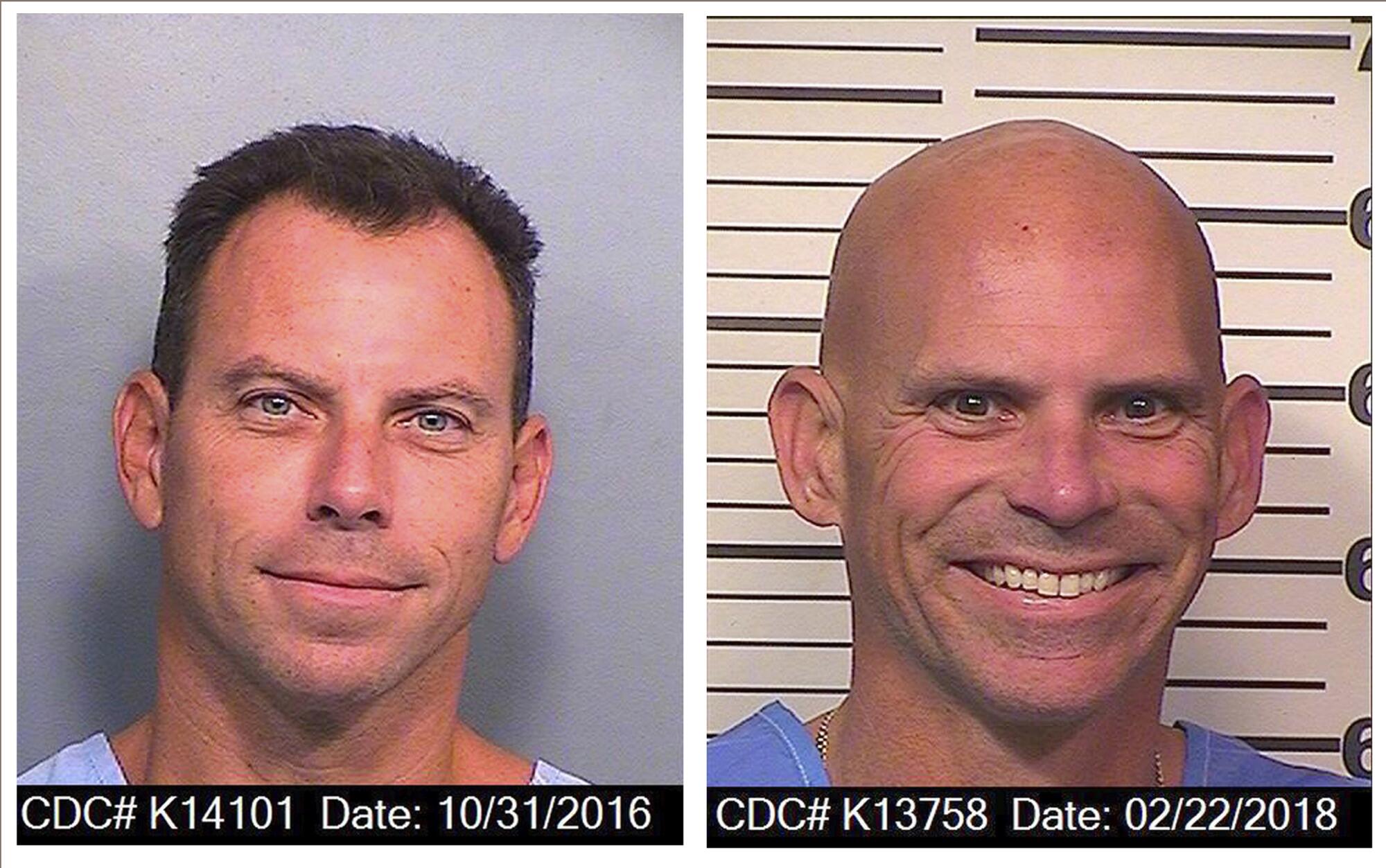
Now serving life sentences without the possibility of parole, Lyle and Erik Menendez have taken leadership roles at the Richard J. Donovan Correctional Facility in San Diego. Lyle is 55 and Erik 52.
Regardless of the petition’s outcome, Ynclan and others who worked on the docuseries say they believe the public’s understanding of the case may change.
“I remember wondering why these two young men who seemingly had everything would risk it all by killing their parents,” said Esther Reyes, the show’s director. “It didn’t seem plausible to me at the time that they would kill out of greed, but what I saw as a spectator was the audience being fed the narrative of ‘greedy rich kids’ and that slowly became the narrative.”
Ynclan said the siblings don’t dispute that they killed their parents.
“They know that they snapped and they deeply regret it,” she said. “They are just asking the world to understand why.”
- Share via
Watch L.A. Times Today at 7 p.m. on Spectrum News 1 on Channel 1 or live stream on the Spectrum News App. Palos Verdes Peninsula and Orange County viewers can watch on Cox Systems on channel 99.
More to Read
Sign up for Essential California
The most important California stories and recommendations in your inbox every morning.
You may occasionally receive promotional content from the Los Angeles Times.
